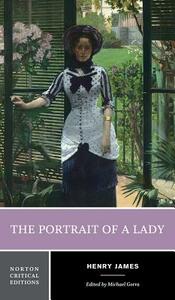Take a photo of a barcode or cover
emotional
reflective
sad
medium-paced
Plot or Character Driven:
Character
Strong character development:
Yes
Loveable characters:
Yes
Diverse cast of characters:
No
Flaws of characters a main focus:
No
Genuinely couldn’t get to the end, very Alabama and seemed very misogynistic, probably a decent guy who has better book though
challenging
emotional
reflective
slow-paced
Plot or Character Driven:
Character
Strong character development:
Yes
Loveable characters:
Complicated
Diverse cast of characters:
No
Flaws of characters a main focus:
Yes
what in the name of endings was that
This one took me a while, but I'm glad I kept coming back to it. James provides a more feminist portrait of marriage than I would have expected from a late 19th century novel, especially one written from a male perspective. His clear empathy for the plight of women was refreshing and honest. I was nervous that this would be another classic about an independent, free-thinking woman who gets trapped by marriage. To be fair, it is, but it's self-aware, so critical, yet also understanding of the flaws of human nature and society. This book won't be high on my list of favorite classics, but it provides that familiar wonder of realizing people have always been the same; the human condition remains relatable across time.
P.S. I was disappointed by the ending, but I feel like publishers/editors may have had a lot of say in the outcome because it was serialized first. The ending may be more of a product of the conventions of the time than what James would have hoped.
P.S. I was disappointed by the ending, but I feel like publishers/editors may have had a lot of say in the outcome because it was serialized first. The ending may be more of a product of the conventions of the time than what James would have hoped.
challenging
dark
reflective
slow-paced
challenging
emotional
reflective
slow-paced
Plot or Character Driven:
A mix
Strong character development:
Complicated
Loveable characters:
Complicated
Diverse cast of characters:
No
Flaws of characters a main focus:
Complicated
challenging
emotional
reflective
slow-paced
Plot or Character Driven:
Character
Strong character development:
Yes
Loveable characters:
N/A
Diverse cast of characters:
No
Flaws of characters a main focus:
Yes
I'm rating books solely on how happy I am to have read them, lol
First of all, I want to say, that while Portrait is a very long book that many people would consider tedious, it does have it's merits. The characters are well-formed and I generally enjoyed reading it, but the ending is SO disappointing. I think that this book took a realistic course as far as the plot went, but I just think that the romantic in me was hoping for a little more.
2020 Book 14
I've been reading Henry James's novels in order, which has allowed me to see his steady growth as an author. Washington Square felt like the culmination of his early work, with its increasing sophistication within established genre boundaries of tragicomedy and melodrama, but this was something on a whole other level. The psychological density of this novel is shocking for the late 1800s, not only in unpacking Isabel in ways sympathetic (its open admiration for her independent streak) and critical (how well James paints her as a woman who realizes too late she was never as clever as she and others thought her to be), but also for how easily it flits between characters and thoroughly delves into their inner psyches and contradictions. It has the horizontal breadth of Tolstoy and the z-axis depth of Dostoevsky. James started this novel with nothing but a basic image and crafted one of the most structurally precise books I've ever read. Especially impressive is the way in which he consistently introduces characters through Isabel's perspective, allows us to see them the way she does, then, much later, give us just enough of those characters away from Isabel that their true selves, even when not nefarious, come as a profound shock to her rosy views.
Chapter 42 is justly famous for how well it manages to completely spell out Isabel's realizations of the mistakes in judgment (of herself and others) that led to her predicament even as it never feels like an exposition dump, instead plunging headlong into the sorrow that tacitly emerged after the novel's significant time jump. But I'm equally fond of the way James parcels out that unease, the way the novel's first half feels so liberating and politely defiant and how at the moment of greatest bliss we skip ahead and realize almost immediately that something has gone amiss. Similarly, I loved a late chapter in which Madame Merle, introduced first as a charming kindred spirit and long ago revealed to be a calculating, spiteful villain, gets a moment to come clean, which she of course doesn't, instead letting the miasma of mutual understanding hang between her and Isabel even as her own regret finally breaks through her walls of ironic detachment and casual cruelty. In some ways it's as revelatory a moment as chapter 42, even though most of its power comes from neither person saying out loud what Isabel has discovered and what Merle can see written in her blanched face.
I've been reading Henry James's novels in order, which has allowed me to see his steady growth as an author. Washington Square felt like the culmination of his early work, with its increasing sophistication within established genre boundaries of tragicomedy and melodrama, but this was something on a whole other level. The psychological density of this novel is shocking for the late 1800s, not only in unpacking Isabel in ways sympathetic (its open admiration for her independent streak) and critical (how well James paints her as a woman who realizes too late she was never as clever as she and others thought her to be), but also for how easily it flits between characters and thoroughly delves into their inner psyches and contradictions. It has the horizontal breadth of Tolstoy and the z-axis depth of Dostoevsky. James started this novel with nothing but a basic image and crafted one of the most structurally precise books I've ever read. Especially impressive is the way in which he consistently introduces characters through Isabel's perspective, allows us to see them the way she does, then, much later, give us just enough of those characters away from Isabel that their true selves, even when not nefarious, come as a profound shock to her rosy views.
Chapter 42 is justly famous for how well it manages to completely spell out Isabel's realizations of the mistakes in judgment (of herself and others) that led to her predicament even as it never feels like an exposition dump, instead plunging headlong into the sorrow that tacitly emerged after the novel's significant time jump. But I'm equally fond of the way James parcels out that unease, the way the novel's first half feels so liberating and politely defiant and how at the moment of greatest bliss we skip ahead and realize almost immediately that something has gone amiss. Similarly, I loved a late chapter in which Madame Merle, introduced first as a charming kindred spirit and long ago revealed to be a calculating, spiteful villain, gets a moment to come clean, which she of course doesn't, instead letting the miasma of mutual understanding hang between her and Isabel even as her own regret finally breaks through her walls of ironic detachment and casual cruelty. In some ways it's as revelatory a moment as chapter 42, even though most of its power comes from neither person saying out loud what Isabel has discovered and what Merle can see written in her blanched face.
Well…some excellent, excellent places. Some pieces of prose made me laugh. Love Ralph! Love Lord Warburton. Caspar Goodwood? Gosh … the ending.




